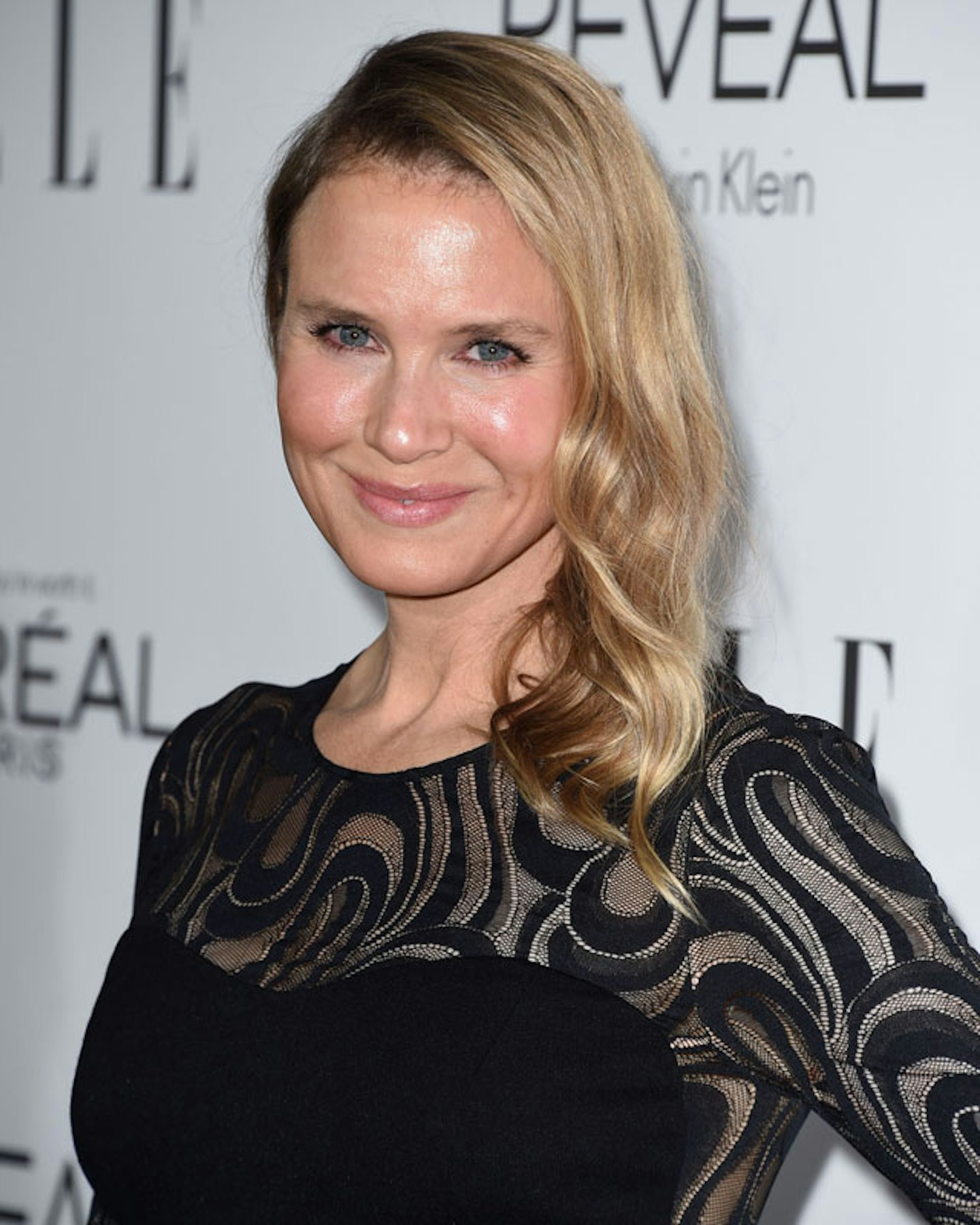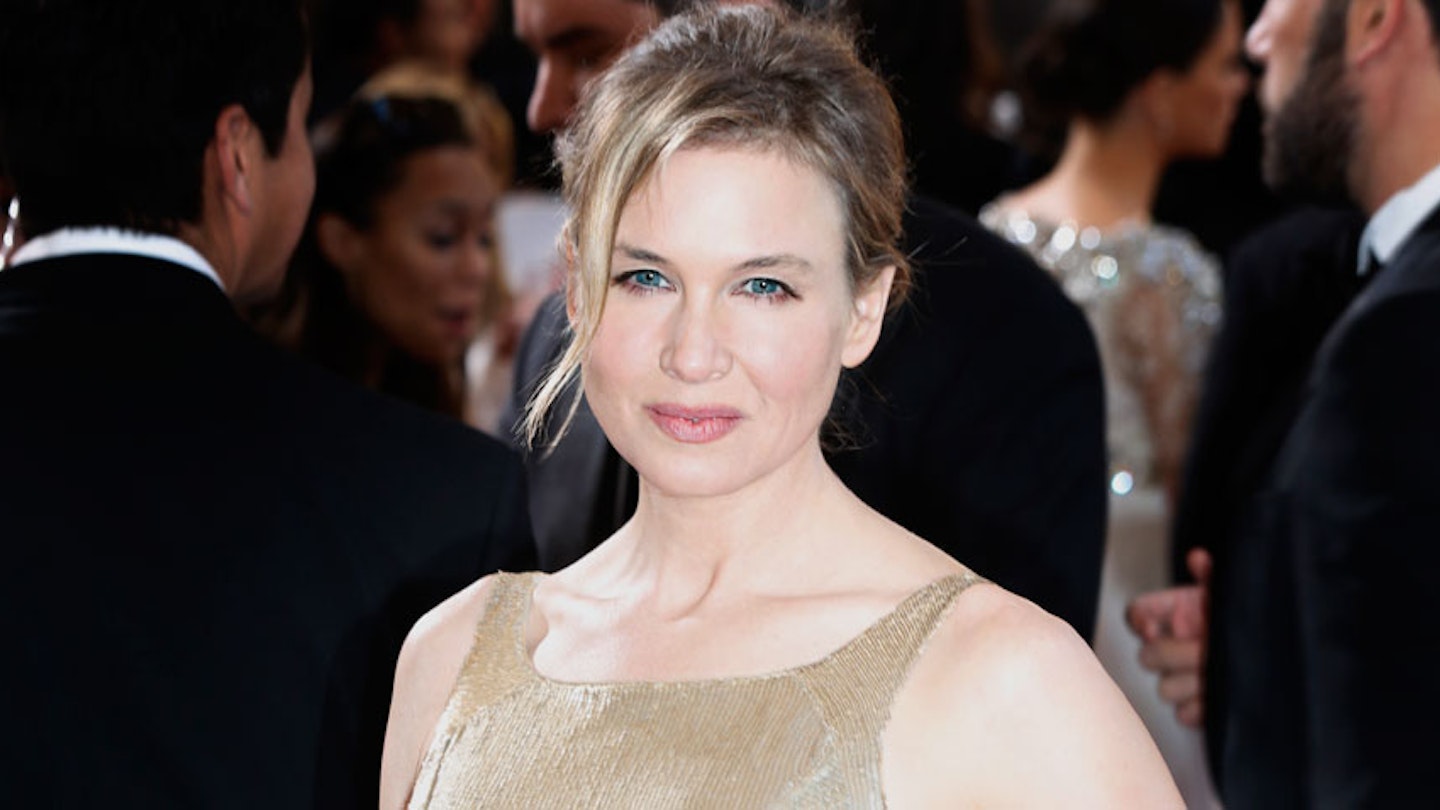In October 2014, Renée Zellweger attended the ELLE Women in Hollywood Awards. The media went nuts. ‘The Jerry Maguire actress looked almost unrecognisable with her super line-free forehead, altered brow and suspiciously puffy face,’ wrote MailOnline. ‘Bridget, Bridget, where have you gone?’ asked The Daily Telegraph. ‘Renée’s face seemed completely different,’ said The Sun. ‘Actress is barely recognisable as she emerges with VERY taut face,’ ran a Mirror headline...
Thereafter followed numerous column inches dedicated to the Great Investigation as to what exactly it was that Renée had had done. Legions of plastic surgeons were called in to make ‘educated’ hypotheses, reducing Renée’s face to a series of diagrams, her individual features highlighted alongside captioned boxes explaining what procedures she might have had to alter them – fillers, botox, blepharoplasty…?
But that’s all old news now, isn’t it?
Not so.
As we approach the September release date of the hotly anticipated Bridget Jones’s Baby, Renée’s face (not to mention body shape) has once again been placed under scrutiny. So much so, that earlier this month (almost two years on from the initial furore) the actress felt compelled to break her silence.
In an essay published by the Huffington Post entitled We Can Do Better, Renée explained: ‘I am not writing in protest to the repellent suggestion that the value of a person and her professional contributions are somehow diminished if she presumably caves to societal pressures about appearance… I’m writing because to be fair to myself, I must make some claim on the truths of my life… Not that it’s anyone’s business, but I did not make a decision to alter my face and have surgery on my eyes.’
There it is: no surgery. Some may then ask, well, what was it then? Why did she look so different? But surely the more interesting question is: why do we care?
The fascination with celebrities and cosmetic surgery dates back to when the surgery was first popularised in the 80s and 90s (although modern plastic surgery dates back to 1915). Our interest arguably comes down to three factors, the first of which, is jealousy.
We don’t like it, but many of us are jealous of celebrities. Perhaps not every aspect of their lives – the trolling, the intrusion – but a portion of it certainly: their looks, their money, their lifestyle. And with that jealousy comes the human inclination to undermine them. Because it makes us feel better about ourselves.
Case in point, I recently said to someone that I thought a celebrity was beautiful. ‘She’s had surgery,’ they replied. Now, we’re all familiar with this scenario, but it’s not entirely clear what we should take from the response. Seemingly, it has two meanings. Meaning one: we are not allowed to find celebrities beautiful if they have had cosmetic surgery – presumably because their look is ‘unnatural’ and therefore they are not authentically beautiful. (With this logic though, anyone who has dyed their hair or wears make-up cannot be considered authentically beautiful either – but it’s a little uncomfortable to think that, so we’ll move on...).
Meaning two: we are meant to take comfort from the knowledge they’ve had ‘help’ (and this is where the jealousy part comes in). If a celebrity has had surgery and is considered beautiful, the assumption is that it is the surgery which has made them beautiful, or at least, added to their beauty. It follows then, that if we had cosmetic surgery, we might be considered beautiful too. So by undermining a celebrity’s beauty with the brush-off ‘They’ve had surgery’, what we are actually saying is: ‘Don’t worry, they’re nothing special. Anyone could look like them’. And to go a step deeper, the subtext of that is: ‘I don’t have to feel bad that they’re prettier than me’.

The second reason we are fascinated with celebs and their facelifts is that we feel sorry for them (and subconsciously, a bit guilty). This usually happens when a celebrity overdoes their cosmetic surgery, or something goes a bit wrong. If we think they looked better before, we feel sad for them – because celebrities care what we think.
When we see that the lips of a celebrity have quadrupled in size, overtaking half their face, we can’t bear it. We feel awful for them because surely they can’t be happy with this outcome? After that follows the guilt. Why? Well, it’s possible their decision to make such face-altering changes sparked from the desire to look more attractive in our eyes (or as a result of our ridicule). We don’t think it’s our fault as such – it was their decision to have the surgery after all, and we didn’t perform it – but there is an uncomfortable feeling there… (whether we wish to acknowledge it or not).
The third reason we care about celebrities and their procedures – and what makes us ultimately gawp and gasp over the pictures – is pure disbelief. Disbelief that they didn’t like how they looked before (when basically, they looked gorgeous); disbelief that they would entrust their physical appearance to someone with a knife; disbelief that they’d go-ahead with something they could never undo (or at least, not without difficulty); disbelief that they look so different; disbelief that they thought we wouldn’t notice… and so it goes on. We can’t quite understand it, and that’s why we look – we have to see it, to believe it.
With this in mind, it’s sad to note that perhaps we will always be interested in celebrities and their cosmetic surgery. Unless, of course, we start having it ourselves. Then we’d lose interest because it would be ‘normal’ and unappealing… And oh, how the tide might turn… ‘You can’t find that celebrity beautiful,’ we might one day come to say, ‘she hasn’t had cosmetic surgery.’
Follow Edwina Langley on Twitter @EdwinaLangley
Don’t forget to subscribe to Grazia before 9 September to make sure you receive your 250-page Big Fashion issue. Click here to find out more.
